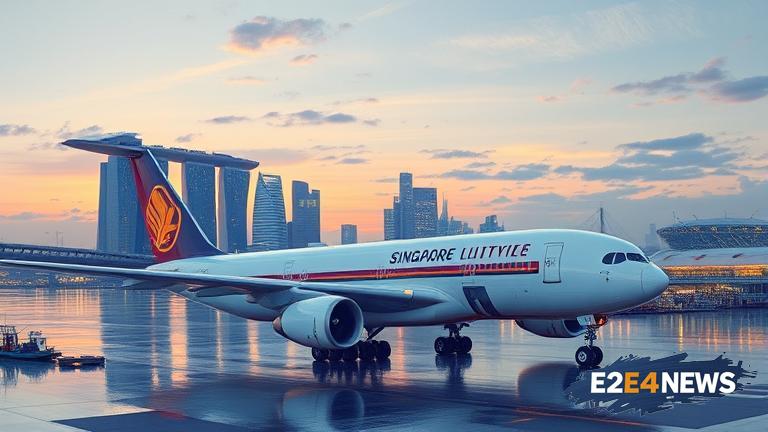Singapore has long been a major player in the global air cargo industry, and its strategic location at the crossroads of Asia has made it an ideal hub for cargo shipments. The country’s world-class infrastructure, including its award-winning Changi Airport, has also played a significant role in its success. In recent years, Singapore has been actively promoting the growth of its air cargo sector, with a focus on innovation, digitalization, and sustainability. The government has implemented various initiatives to support the industry, including the development of a new cargo facility at Changi Airport and the introduction of a cargo community system to enhance efficiency and security. Singapore’s air cargo sector has also been boosted by its strong trade relationships with other countries in the region, including China, India, and Indonesia. The country’s favorable business environment, with its highly developed logistics and transportation network, has also made it an attractive location for air cargo companies. In addition, Singapore’s strong focus on innovation and technology has led to the development of new air cargo solutions, such as the use of drones and artificial intelligence. The country has also been at the forefront of efforts to reduce carbon emissions and promote sustainable air cargo practices. Despite the challenges posed by the COVID-19 pandemic, Singapore’s air cargo sector has continued to grow, with cargo volumes increasing by over 10% in 2020. The sector is expected to continue to play a major role in the country’s economy, with the government forecasting growth of over 5% per annum in the coming years. Singapore’s success in the air cargo sector has also had a positive impact on the wider region, with other countries in Southeast Asia looking to follow its example. The country’s experience and expertise in air cargo have made it a valuable partner for other nations in the region, and its strong trade relationships have helped to promote economic growth and development. As the air cargo industry continues to evolve, Singapore is well-placed to remain a major player, with its strong infrastructure, innovative solutions, and favorable business environment. The country’s commitment to sustainability and reducing carbon emissions is also expected to have a positive impact on the environment, and its strong focus on digitalization and technology will help to drive efficiency and growth in the sector. Overall, Singapore’s air cargo sector is set to continue to thrive, and its success will have a positive impact on the wider region. The country’s experience and expertise in air cargo will also help to promote economic growth and development in Southeast Asia, and its strong trade relationships will continue to play a major role in the region’s economy.
